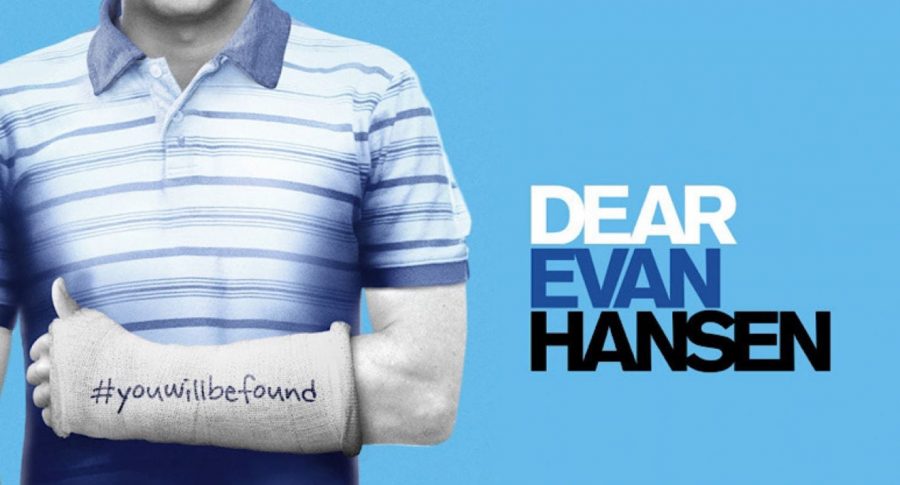Why is Dear Evan Hansen so criticized?
“Dear Evan Hansen” hit theaters on September 24th, 2021.
“Have you been writing those letters to yourself: Dear Evan Hansen, This is going to be a good day, and here’s why…” With these words, the aptly named Dear Evan Hansen musical begins.
“Dear Evan Hansen” is the story of a high school boy named Evan Hansen who writes letters to himself as an assignment from his therapist because of his social anxiety. One day, a boy named Connor steals his letter and later commits suicide with it in his pocket. His parents find the letter and assume Connor wrote it to Evan, who then gets caught in the lie that he and Connor were friends.
Recently, the acclaimed musical received a movie adaptation, which has received mixed reviews to say the least. This controversial movie has been panned by many critics for its portrayal of mental health. It currently has a 28% critics Rotten Tomatoes score.
But why is this movie so controversial?
The answer lies in one place: the character of Evan Hansen. Through his and Connor’s characters, the show attempts to represent mental health struggles, but many critics felt that this portrayal fell on its face. Richard Roeper of the Chicago Sun Times even called it “manipulative.”
Connor commits suicide very early on in the show, but he fails to be a convincing character for the audience to latch on to. Connor’s character could have been a touching portrayal of a teen struggling with mental health, but unfortunately, the audience ends the show knowing almost nothing about him. Who he really was gets erased and replaced with Evan’s fake version of him. His whole life is rewritten by Evan, whom some critics see as just using Connor for his own gain.
Throughout the course of the musical, Evan’s character lies to Connor’s grieving family, and this lie starts out as an honest mistake, but then Evan winds up purposely continuing the lies in order to “get with” the dead kid’s sister. Critics and some audience members saw this, again, as manipulative and therefore, could not sympathize with Evan. The theater show had these issues as well, but the movie has been disliked by so many more people because of the choice to try and make Evan seem like a purely good character. The movie cuts key songs that exist in the musical to emphasize that Evan is a very morally complex character.
The songs in question are called “Disappear” and “Good for You.” “Disappear” is an important song because it shows why what Evan is doing is so bad. The song has lines such as “No one deserves to be forgotten,” yet Evan is actively erasing who Connor actually is. As theater YouTuber Amy Lovatt puts it: “I think that getting rid of Disappear is such a shame, because, like, I don’t feel like we learned enough about Connor to remember how bad what Evan’s doing is.”
The song, “Good for You,” shows the rest of the cast getting mad at Evan, because what he’s doing is genuinely awful. Most importantly, “Good for You” shows Evan’s feeling guilt for his actions, and actively deciding to fix what he’s done.
Furthermore, casting Ben Platt, a grown man in his late twenties, provides even less reason to sympathize with him. After all, it’s easier to sympathize with a teenager who made a mistake over a full grown adult who should know better. Additionally, the film has been accused of nepotism. Ben Platt’s father, Marc Platt, co-produced this movie, which made some people speculate that Ben Platt got the role because of his father.
In a now-privated interview with Zach Sang, Ben Platt stirred even more criticism when he responded to comments on his age by saying “were I not to do this movie, it probably wouldn’t get made.” Audiences were quick to call him out on his comments, saying that his ego had grown too big, and comparing his casting to that of “The Prom,” in which none of the original actors were cast to be in the movie adaptation, despite having very similar circumstances.
The bottom line is that for one reason or another, audiences weren’t able to sympathize with Evan Hansen enough to enjoy a movie with him as the central protagonist. As simple as it may sound, the true reason audiences didn’t like “Dear Evan Hansen” was Evan Hansen himself.

Emily Bock '23 is a staff writer and a junior at Castilleja. Outside of Counterpoint, Emily loves singing, acting, writing, and playing volleyball. She...













Missy | Mar 1, 2023 at 1:53 pm
I wanted Ben Platt to play Evan because he’s the only one I know as Evan. When I discovered Dear Evan Hansen back in 2018, it was the day after my elderly friend died from cancer and the soundtrack gave me something that got tears to flow freely (I feel like I was meant to find it because YouTube never recommended the series when he was alive).
I bought the CD, watched videos on YouTube people made using the music, bought the book when it was eventually released and was happy to hear the movie was being made (took me a year to actually see the movie even though I bought it the week it was released on dvd). Ben Platt was long gone from the Broadway version when I found the series and I refused to see someone else do the role since I was so used to the CD.
I wish Disappear was included because it had Connor’s ghost get included and the song always made me cry. Alana’s song was nice, but it shouldn’t have been a replacement or get placed in the movie multiple times. The glove song was one my mom and I always skipped on the CD so that wasn’t a huge loss (same for the map song), but I wish the confrontation song and true ending song got included (Evan’s ending song from the CD was a true conclusion and the brief lines in the movie made it feel like something was coming next). Connor’s song was a nice addition and showed a piece of his story. I love the book because you get shown his thoughts and what he actually went through.
Mary | Jun 25, 2022 at 8:37 am
Maybe I’m just weird, but I found him to be a very sympathetic character, but he reflects my own illness so I suppose I view him in a different light. I took his story about being Connor’s friend as a compassionate act to comfort the grieving family and show that Connor had some measure of happiness in his life. I felt sorry for him to not be able to assert himself and reveal the truth. He did try to tell them, but every time he tried to , someone would cut him off or deny what he was trying to say. It’s really hard to be assertive when you suffer from severe anxiety and depression. For the first time in his life, Evan felt seen and heard and he was part of something larger than himself. Maybe I missed the point of the whole story, but I found the movie to be somewhat cathartic.
John Trigueiro | Mar 31, 2022 at 4:33 pm
I cringed during the entire movie. I loathed the Evan Hansen character. It wasn’t the cast that caused this movie adaptation to fail, it was the plot and the Evan Hansen character. I’m glad I didn’t pay to see this movie.
Zoe Zappas | Nov 15, 2021 at 11:38 am
That is crazy that the film adaptation cut out those integral songs!
Veda | Aug 21, 2022 at 1:28 pm
Songs? I just saw the musical last night. There isn’t a drop of music in the “musical.” My God, would someone please write a tune that is more than 5 steps? And would someone please find some voices?